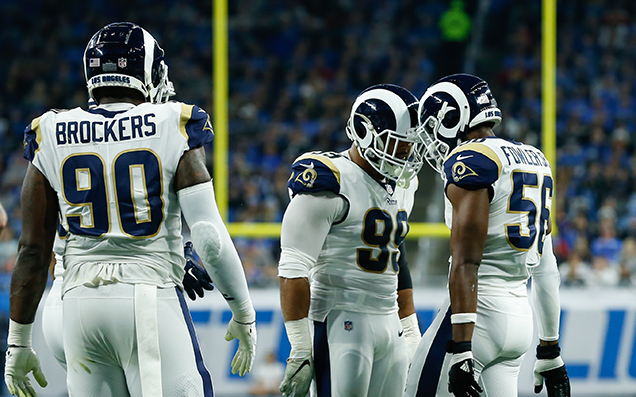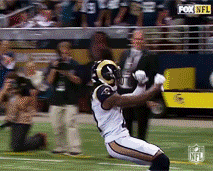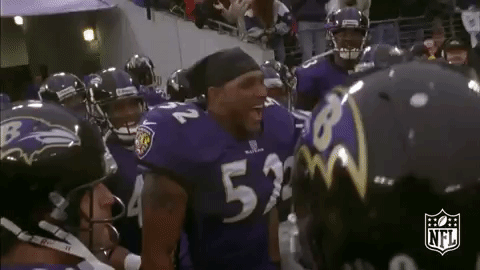
One of the sadder facts of sport being a truly professional game is that cash, ultimately, rules everything around it. And when the well runs dry in one city, often teams will look to more prosperous pastures elsewhere. Particularly in the United States. Even worse for fans in the original town, quite often that move means watching from afar as their former home-town team begins enjoying the fruits of success in their new home.
Digging back through the annals of sporting history, we found a bunch of franchise relocations that either coincided with – or kickstarted – periods of sustained success in their new cities and towns (not to mention changed their odds on Ladbrokes). And with the NFL Playoffs upon us, there’s no better sport to start with than the ole’ grid iron.
Los Angeles/St Louis Rams
The Rams have always been an underachieving bunch, but their decades of mediocrity in their initial Los Angeles tenure, which stretched from 1946 until 1994, saw just one pre-NFL/AFL merger championship in 1951 and one losing Super Bowl effort in 1979.
Strained fan relationship with team management and an ageing stadium in Anaheim saw the side uprooted at the start of the 1995 season and transplanted halfway across the country to St. Louis, Missouri. Two years later the side picked up journeyman quarterback Kurt Warner. By the end of the 1999 season, the side were Super Bowl champions for the very first time.
Ironically enough, shady ownership deals and stadium issues were behind the side’s ultimate relocation back to Los Angeles in 2016. Fast forward two years, and the side – behind quarterback Jared Goff – is poised to make a deep run in this year’s NFL Playoffs.
Given that now the Rams are now one of the favourites to win the Super Bowl, we’ll see how it plays out for them.

Oakland/Los Angeles Raiders
Oddly enough, this is one of the few cases of a team who was already doing well still falling victim to relocation. The Oakland Raiders at the end of the 1970s were a force to be reckoned with, scoring two Super Bowl wins in 1976 and 1980. But off the field, enigmatic owner Al Davis yearning for the bright lights of Los Angeles saw him drag the franchise through an ugly legal battle that eventually had the team uprooted and planted into the Los Angeles Memorial Coliseum in 1982. The following year, the now-Los Angeles Raiders toasted their new home city by bringing home a third Super Bowl win for the franchise, torching the Washington Redskins at Super Bowl XVIII.
Declining fortunes saw Davis walk the Raiders back up the road to Oakland in 1995 (a move the NFL was powerless to prevent given they didn’t formally recognise their initial Los Angeles relocation in the first place) before Davis passed away in 2011.
The nomadic franchise is soon to be on the move again, with a relocation to Las Vegas planned for 2020 at the latest.
Cleveland Browns/Baltimore Ravens
This one still stings in Ohio. In 1995, Browns owner Art Modell made himself the most hated man in Cleveland by attempting to yank the city’s beloved Browns out of town and over to Baltimore.
An ugly legal stoush between Modell, the NFL, and basically the entire population of Cleveland ensued. The end result being a “compromise” relocation deal, in which Modell took the administration, playing roster, and management of the Browns and formed the Baltimore Ravens in Maryland, while Cleveland kept the Browns identity and history to be re-activated once the city completed a new stadium build.
The Browns resumed play in the NFL in 1999, and have been football’s punching bag ever since. One year after they re-emerged, the Ravens won Super Bowl XXXV in 2000. Twelve years later, the Ravens did it again in Super Bowl XLVII.

Minnesota North Stars/Dallas Stars
One of the few NHL sides to relocate and retain their identity, the Minnesota North Stars packed up in 1993 and headed south to Dallas, retaining the Stars name, logo, and colour scheme in the process. While a raft of the usual financial reasons were at the core of the relocation, this one is notable for a sexual harassment lawsuit levelled against then-owner Norm Green, whose wife reportedly threatened to leave him unless he moved the team from Minnesota in order to avoid increased media scrutiny in the area.
In Minnesota, the North Stars had mediocre fortunes in a 26-year run, which featured just one losing appearance in the Stanley Cup Finals. In Dallas, behind future Hall of Famers Mike Modano, Ed Belfour, Brett Hull, and Joe Nieuwendyk, the franchise captured the elusive breakthrough Stanley Cup in the 1998-99 season. The following year, pro-hockey returned to Minnesota via the expansion franchise the Minnesota Wild. They are yet to win a Stanley Cup.

New Orleans/Utah Jazz
The NBA is certainly not immune to relocation blues either, though it’s been a slightly less frequent occurrence than their hockey brethren. The New Orleans Jazz were formed in 1974 and almost immediately began haemorrhaging money, forcing a relocation to Salt Lake City in 1979 that was done so last-minute there was no time for the side to choose a new identity. Instead, they settled on being known as the Utah Jazz, despite Utah (if you believe Baseketball) not allowing music.
With a side that sported genuine legends John Stockton and Karl Malone, the Utah Jazz made 20 consecutive NBA Playoff appearances beginning in 1984, and twice came within a hair’s breadth of scoring a maiden NBA Championship in 1997 and 1998. The only thing standing in their way? A Chicago Bulls outfit fronted by some bloke named Michael Jordan. You may have heard of him.
South Melbourne/Sydney Swans
It’s not just the United States getting around it. Australia loves itself a sports team relocation too.
By the late 1970s and early 1980s, the then-Victorian Football League had begun exploring plans to establish a long-term base in Sydney in a bid to grow the game in the non-Australian Rules states of NSW and QLD. In 1981 South Melbourne, who at that point had not tasted Premiership success since 1933, agreed to move all its home games to the Sydney Cricket Ground for the 1982 season onwards.
Though the now-Sydney Swans struggled throughout the 80s, key personnel changes and culture adjustments in the 90s kick-started a period of sustained success that has seen them miss the finals only three times since 1996. In that time, the club has qualified for 6 Grand Finals, securing 2 Premierships in the process.
So really, it’s pretty safe to say that a change of pace can change the game for some teams. To get the lowdown on what’s really setting the teams apart, have a peep at Ladbrokes and compare them yourself.
Is gambling a problem for you? Call Gambling Help on 1800 858 858 or visit www.gamblinghelponline.







